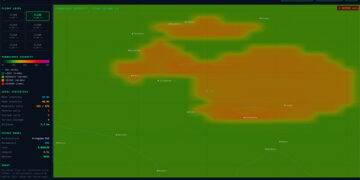Losing a loved one is always a profoundly difficult experience, but when that loss is the result of someone else’s negligence or wrongful actions, the pain can be even more devastating. This is where the concept of wrongful death comes into play.
Understanding what constitutes wrongful death is essential for those who find themselves facing the emotional and legal complexities it presents. Seeking justice in the form of legal action can provide both closure and essential financial support for families left behind. Our guide will explore the intricacies of wrongful death claims and offer insight into the legal process and how to pursue the justice your loved one deserves.
Consult with a Specialized Attorney
Navigating a wrongful death claim requires the expertise of a specialized attorney who understands the complexities involved in such cases. For wrongful death legal cases, you need a professional who has experience and knowledge in this specific area of law. A specialized attorney will be able to guide you through the process, help you understand your rights, and ensure that you receive the maximum compensation possible. During your initial consultation, you can discuss your case in detail, ask any questions you may have, and gain a better understanding of what to expect. Note that most attorneys provide free consultations to potential clients, so it’s essential to take advantage of this opportunity.
Who Can File a Wrongful Death Claim?
In most jurisdictions, a wrongful death claim can be filed by the deceased person’s immediate family members, such as spouses, children, or parents. Some states allow extended family members like siblings or grandparents to file a claim in the absence of direct relatives. The rules surrounding eligibility can vary, so it’s crucial to consult with an attorney to understand who may legally pursue a wrongful death suit in your specific case.
In some instances, the executor of the deceased’s estate may also be eligible to file the claim to benefit the surviving family members. Understanding who can file is important to ensure that the case proceeds without any jurisdictional issues, allowing the family to focus on obtaining justice and the compensation they are entitled to.
Types of Damages in a Wrongful Death Claim
Wrongful death claims may seek compensation for various types of damages, including economic and non-economic losses. The types of damages that can be pursued will depend on the circumstances surrounding the death and the laws in your state. Some common types of damages in wrongful death cases include:
- Medical expenses related to the deceased person’s final illness or injury
- Funeral and burial costs
- Loss of financial support that the deceased would have provided to their family
- Loss of inheritance, including potential future income and benefits
- Emotional distress suffered by surviving family members, such as loss of companionship or consortium
For more specific information on the damages that may be pursued in your case, it’s best to consult with a wrongful death attorney who can provide personalized guidance.
The Importance of Seeking Justice
Losing a loved one is an unimaginable pain, and seeking justice through legal action may not be the first thing on your mind. However, holding the responsible party accountable for their actions can bring closure and peace of mind to those left behind. It also serves as a deterrent to others who may engage in similar negligent or reckless behavior.
Pursuing legal action can ease financial burdens caused by the loss of income and significant expenses such as medical bills and funeral costs. While no amount of money can ever replace a loved one, obtaining the right compensation can provide the necessary financial stability during a difficult time.
How to Prove a Wrongful Death Claim
Successfully proving a wrongful death claim requires establishing certain legal elements in court. Firstly, you must demonstrate that a duty of care existed between the deceased and the defendant. This often involves showing that the defendant had a responsibility to act—or not act—in a certain way to prevent harm.
Secondly, you need to prove that there was a breach of this duty through negligence, recklessness, or intentional wrongdoing. This breach must have directly caused the decedent’s death. Lastly, it is essential to illustrate the damages suffered by the surviving family members as a result of the death.

Wrongful death claims are complex legal processes that require an understanding of both the emotional and legal aspects involved. While no legal action can ever fully replace the loss of a loved one, pursuing a wrongful death claim can provide much-needed compensation and a sense of justice. It holds wrongdoers accountable and can help prevent future negligence or misconduct.
Seeking the guidance of a specialized attorney will ensure that your family’s rights are protected and that you receive the compensation you deserve. Remember, obtaining legal justice addresses the present grievances and, most importantly, sustains the memory and legacy of your loved one.





























